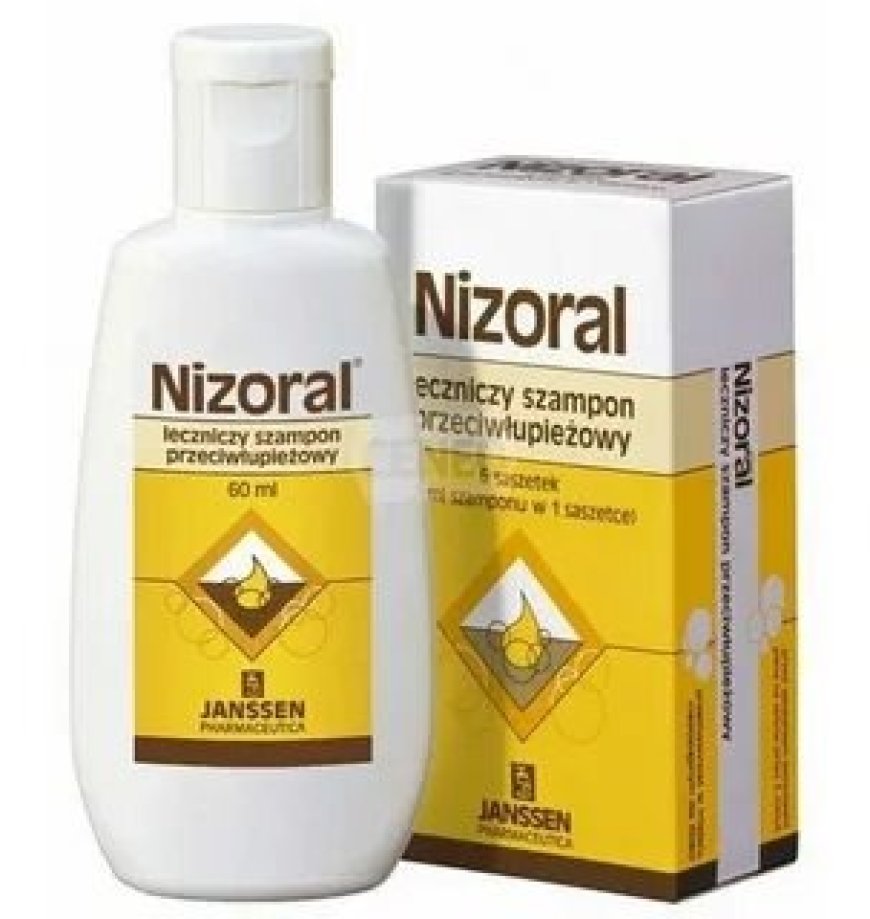Nizoral Shampoo for Dandruff: Does It Really Work?

Nizoral shampoo has become a well-known solution for treating dandruff and other scalp conditions. But does it actually work, or is it just another over-the-counter product with big promises? In this detailed guide, well explore how Nizoral shampoo works, what makes it different, and how you can use it effectively for real results.
What Is Nizoral Shampoo?
Nizoral shampoo is a medicated anti-dandruff shampoo that contains ketoconazole, an antifungal ingredient. Its designed to treat dandruff by targeting the root cause: a yeast-like fungus called Malassezia that grows on your scalp. When this fungus increases, it causes scalp irritation, flaking, itching, and visible dandruff.
Unlike typical cosmetic shampoos, Nizoral shampoo offers medical-grade treatment. Its available in both prescription and over-the-counter versions, with strengths usually ranging from 1% to 2% ketoconazole.
How Does Nizoral Shampoo Treat Dandruff?
Dandruff isnt just about dry skin. It often stems from fungal growth and scalp inflammation. Nizoral shampoo works in these key ways:
Targets Fungal Growth
The main ingredient, ketoconazole, kills the fungus that leads to dandruff. By reducing the amount of Malassezia on the scalp, it stops the cycle of flaking and irritation.
Soothes Itchy and Inflamed Skin
Nizoral shampoo has anti-inflammatory properties. It helps calm redness, reduce itching, and heal irritated patches of the scalp.
Deep Cleanses the Scalp
It also helps remove excess oil, product buildup, and dead skin that may block pores and worsen scalp conditions. This makes your scalp feel fresh and balanced.
Key Benefits of Using Nizoral Shampoo
Here are some real benefits of using Nizoral shampoo when used correctly:
-
Visible reduction in flakes after a few washes
-
Relief from itching and irritation
-
Helps treat seborrheic dermatitis
-
Can be used alongside your regular shampoo
-
Improves scalp health over time
These advantages make Nizoral shampoo a trusted option not only for dandruff but also for general scalp care.
Is Nizoral Shampoo Effective for Everyone?
Nizoral shampoo works for many users, but results can vary. Its effectiveness depends on the cause of your dandruff, your skin type, and how consistently you use it.
Its most effective for:
-
People with fungal dandruff
-
Those suffering from seborrheic dermatitis
-
Mild cases of psoriasis on the scalp
However, if your dandruff is caused by dry skin, allergies, or other non-fungal reasons, Nizoral shampoo may not work as well. In that case, moisturizing shampoos or other treatments might be more suitable.
How to Use Nizoral Shampoo the Right Way
To get the most benefit, it's important to follow the correct usage instructions:
Step-by-Step Usage Guide
-
Wet your hair and scalp completely with lukewarm water
-
Apply a small amount of Nizoral shampoo and gently massage into your scalp
-
Leave it on for 35 minutes to allow the active ingredient to work
-
Rinse thoroughly and avoid using hot water
-
Repeat 23 times a week, or as directed by a dermatologist
Avoid using it daily unless prescribed, as overuse may dry out your scalp.
Can Nizoral Shampoo Be Used With Other Products?
Yes, you can use Nizoral shampoo along with your regular shampoo and conditioner. On non-treatment days, use a gentle, sulfate-free shampoo to keep your hair clean and moisturized.
You can also combine it with scalp serums or oils, but apply those only after rinsing and drying your hair. Never mix them directly with Nizoral shampoo during the wash.
Possible Side Effects of Nizoral Shampoo
While Nizoral shampoo is safe for most people, some may experience mild side effects:
-
Dry or oily scalp
-
Temporary hair shedding
-
Mild irritation or burning sensation
-
Color changes in chemically treated hair
If you experience severe itching, rash, or swelling, stop using it and consult a dermatologist. Always read the product label and avoid contact with eyes.
Nizoral Shampoo vs Regular Anti-Dandruff Shampoos
Lets compare Nizoral shampoo to common brands like Head & Shoulders or Selsun Blue:
|
Feature |
Nizoral Shampoo |
Regular Dandruff Shampoos |
|
Main ingredient |
Ketoconazole (antifungal) |
Zinc Pyrithione, Selenium Sulfide |
|
Treats fungal causes |
?? |
? or Partial |
|
Medical-grade treatment |
?? |
? |
|
Frequency of use |
23 times/week |
Often daily |
|
Works on seborrheic dermatitis |
?? |
? |
Nizoral shampoo provides stronger treatment for persistent or medical-level dandruff, while regular shampoos are better for maintenance or mild cases.
Can Nizoral Shampoo Help With Hair Loss?
This is a common question. While Nizoral shampoo is not officially a hair-loss treatment, some studies suggest it may help reduce hair shedding when caused by inflammation or scalp fungus.
By clearing blocked follicles and reducing fungal infections, it may promote healthier hair growth. However, if you suffer from androgenetic alopecia (pattern baldness), you may need other treatments like minoxidil or finasteride.
Who Should Avoid Using Nizoral Shampoo?
Nizoral shampoo is not for everyone. Avoid using it if:
-
Youre allergic to ketoconazole
-
You have open wounds on your scalp
-
You have extremely sensitive skin
-
Youre using strong topical treatments unless advised
Pregnant or breastfeeding women should consult their doctor before use, though topical application is generally considered low-risk.
Tips for Getting the Best Results
Here are a few expert tips to help you make the most of Nizoral shampoo:
-
Always do a patch test before full use
-
Stick to a consistent routine for at least 4 weeks
-
Combine with healthy hair habits, like avoiding harsh products
-
Use a moisturizing conditioner to prevent dryness
-
Avoid scratching your scalp during treatment
Consistency is key. You may not see instant results, but regular use brings visible improvement over time.
What Real Users Say About Nizoral Shampoo
Many users report positive outcomes after using Nizoral shampoo:
-
My flakes disappeared in just two weeks!
-
Finally something that soothes my itchy scalp.
-
It worked better than any salon product I tried.
Online reviews consistently praise its effectiveness for dandruff, itchy scalp, and overall scalp health.
Final Thoughts on Effectiveness
So, does Nizoral shampoo really work for dandruff? Yes, for most people dealing with fungal-based scalp issues, it delivers noticeable relief and long-term improvement. With consistent use and the right care routine, Nizoral shampoo can become a powerful part of your hair care solution.
If youve been struggling with dandruff and havent found lasting relief, this may be the treatment your scalp needs.




































